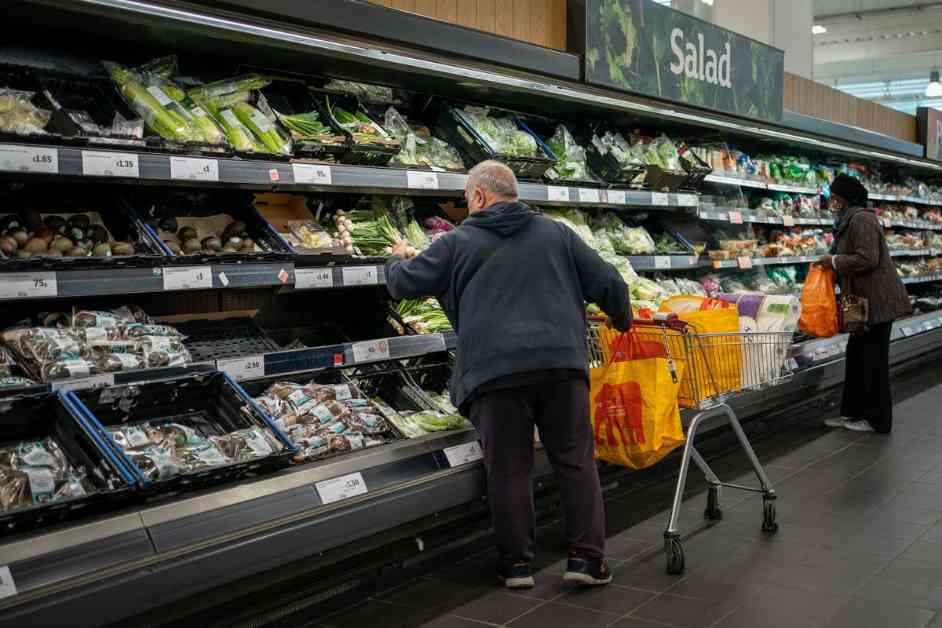UK Inflation Hits 2.2% in July, Impacting Interest Rate Outlook
UK inflation has risen to 2.2 per cent in July, marking the first increase this year and impacting the outlook for interest rates in the country. The Consumer Prices Index (CPI) inflation rose from 2 per cent in June, slightly below economists’ expectations of 2.3 per cent. Despite the smaller than expected increase, it remains above the Bank of England’s target of 2 per cent.
Implications for Interest Rates
The increase in inflation has raised concerns about the potential for interest rate cuts by the Bank of England. The rise in CPI services price inflation, a key indicator for the Bank, fell from 5.7 per cent to 5.2 per cent in July. This data suggests that prices are rising faster across the country, albeit at a slower rate compared to previous years.
The Monetary Policy Committee had previously voted to cut interest rates to 5 per cent in August, a quarter-point reduction. Economists now anticipate that the slight uptick in inflation could lead to a decision to keep interest rates steady. However, there are expectations for further cuts later in the year.
Expert Insights
Ruth Gregory, deputy chief UK Economist at consultancy Capital Economics, stated, “The smaller-than-expected rise in CPI inflation and the sharp fall in services inflation will reassure the Bank of England that the disinflation process is on track, possibly leading to more interest rate cuts later this year.”
Sarah Coles, head of personal finance at Hargreaves Lansdown, commented on the inflation rise, noting that it may not significantly impact the Bank of England’s decision on interest rates in September. Luke Bartholomew, deputy chief economist at Abrdn, added that the fall in services inflation should provide reassurance to policymakers regarding inflation pressures.
The Bank’s Outlook
The Bank of England projects that inflation will rise to around 2.75 per cent in the second half of the year, primarily due to price increases in the service sector. However, it anticipates a decrease in inflation over the following years, reaching 1.7 per cent in 2026 and 1.5 per cent in 2027.
Response from the Treasury
Darren Jones, chief secretary to the Treasury, acknowledged the challenges posed by rising inflation, stating, “The new government is aware of the struggles many families face with the cost of living. We are making tough decisions now to strengthen the economy and improve living standards across the country.”
Conclusion
The recent increase in UK inflation to 2.2 per cent in July has significant implications for the country’s economic outlook and interest rate policies. While experts anticipate further interest rate cuts later in the year, the Bank of England’s decision will be influenced by various economic factors, including inflation trends and service sector performance. As the government works to address the cost of living challenges, it remains crucial to monitor inflation developments and their impact on the overall economy.












